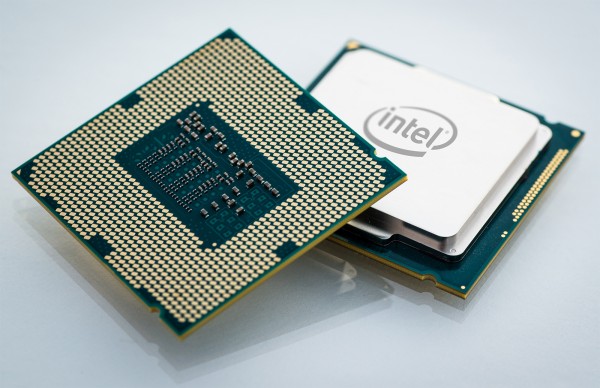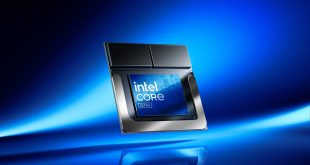The first details surrounding Intel's Kaby Lake line-up of mainstream CPUs appear to have leaked out, revealing some key specifications for the upcoming 7th generation Intel Core i7 7700K. This comes just a few weeks after Intel updated its CPU roadmap, killing off the tick-tock release cycle that we have become accustomed to over the years.
Kaby Lake will once again be a 14nm offering, just like Skylake and Broadwell before that. The leak (via wccftech) seems to reveal details of three Kaby Lake CPUs, the Core i7-7700K, Core i7-7500U and the Core M7-7Y75.
The 7700K will reportedly stick to the quad-core hyper-threaded design that has been in use for quite a few generations at this point. According to the SisoftSandra Database, the new mainstream desktop flagship chip is currently clocked at 3.6 GHz with a boost up to 4.2 GHz. However, these are early samples listed so clock speeds are likely to change. After all, the current Skylake 6700K runs at 4.0GHz so it would make sense for Intel to match that with Kaby Lake. Other specs include an 8MB L3 cache, 256KB of L2 cache and a 4 GHz internal memory controller.
The other two processors listed in this particular leak are lower power chips intended for ultrabooks and laptops. The Core i7-7500U for instance is apparently a dual-core sample with a 2.7GHz base clock, while the new Core M is built to not exceed 4.5 watts while also retaining a dual-core, multi thread design.
KitGuru Says: This is all early information so it should be taken with a grain of salt. Things like clock-speeds are subject to change prior to release anyway. That said, are any of you waiting on the new Kaby Lake series of processors from Intel? Are you holding off until 10nm?
 KitGuru KitGuru.net – Tech News | Hardware News | Hardware Reviews | IOS | Mobile | Gaming | Graphics Cards
KitGuru KitGuru.net – Tech News | Hardware News | Hardware Reviews | IOS | Mobile | Gaming | Graphics Cards




I was rather hoping you guys would tell me if it was worth upgrading lol probably won’t be worth going from a 6700k.
just wait, if ZEN is what we all hope it is, intel will probably drop the prices to compete with AMD and you can get your intel 7XXX way cheaper that it will be before the release of ZEN.
Then maybe it will worth it, just wait and let the competition do it’s magic.
So, with no tick-tock, we’re only getting ticks? It makes sense for Intel without competition right now. A bold move would have been a 6-core processor for 77xxK, it’s easy for them to do. However, there’s no business case for i.
AMD really needs to get their single core performance on par with previous generation Intel processors (say, Ivy Bridge) and then offer a cheap 8 core alternative. My concern with Zen is that AMD won’t hit that key single core performance nor the performance/watt due to Intel being ahead two or three generations. Also, AMD won’t be aggressive enough with pricing to stem the tide. IMO, they need their top of line chip to be cheaper than an i5 with performance of an i7.
What an incredibly boring CPU.
wake me up when something interesting happens
I doesn’t need the performance of an i7, it just needs to beat the average i5 while remaining the more solid option in terms of price to performance
I imagine the performance increase from a 6700K would be negligible, if you have even a 2600K that will overclock to 4.8Ghz there’s no need to upgrade either. The only reason I can think of would be PCIe 3.0 if you’re running SLI.
Speculation is AMD supporting hyperthreading and dual CPUs in a chip. AMD plans for Zen to compete with Xeon with new Opterons so I’m optimistic their top of the line AM4 chip will be i7 (four core) competitive. All speculation, however.
it is possible, but with AMD reporting that they are back on track all the bets are on the table now!
I’ll admit I haven’t been interested in anything AMD CPU or GPU wise since I had a Phenom 2 all those years ago, but the hype around ZEN is getting me just a little excited. It would be awesome to see AMD be a viable component again, even if they’re just on par with current Intel CPUs, I imagine they’d be cheaper and that would bring Intel’s prices down too.
Will KabyLake include at least “PCIe 4.0 Ready”? I’ve not heard anything on that so I assume no, even tho Intel promised PCIe 4.0 for SkyLake and then removed it. They are now claiming the Z270 motherboards will be Optane ready but, with what limitations? Will the BUS pipeline/bandwidth be big enough or just turn into another bottleneck?
I was going to buy a Skylake system but glad I didn’t.
I may skip Kaby Lake too. I wish they’d just do what they say they’re gonna do.
http://www.tomshardware.com/forum/id-2983311/200-series-union-point-motherboards.html
;
I’m just waiting for 2019 chips as I already have a Haswell chip.
What’s everyone getting hyped about PCIe 4.0 for? PCIe 4.0 was never promised. Perhap’s you mean DDR4?
Besides, for Dual GPU, 8x + 8x @ 3.0 is still plenty, and with things like nVidia’s new SLI Technology only properly supporting 2 GPUs that’s fine.
Stick your two 1080’s on CPU’s PCIe lanes at 8x + 8x, and a third 1070/1080 for physx off the PCH.
PCIe is not a bottleneck in any way except for the sudden rush for PCIe SSDs, though thats mainly the fault of people using 2.0 lanes on their board.
Currently my main PC has broken, so i’m running my Titan X in a low profile case using a x1 riser cable. I’ve had little to no performance loss. Slight bit of stutter on flashy scenes but thats it. And x1 is 1/16th of a x16 (surprise surprise). So bandwidth for graphics isn’t such an issue, at all.
SkyLake is for people upgrading from 6 series chipsets and older. All the people complaining “my 2500K at 5ghz whatever is just fine” and refusing to upgrade fair enough, this time round Intel’s gone out there and hugely increased the IO on the PCH, to give people a reason to upgrade.
2500K @ 4.8GHz = 6600K @ ~6.0GHz (about a 20-25% IPC increase). Then you have the huge range of expandability on Z170 vs Z68.